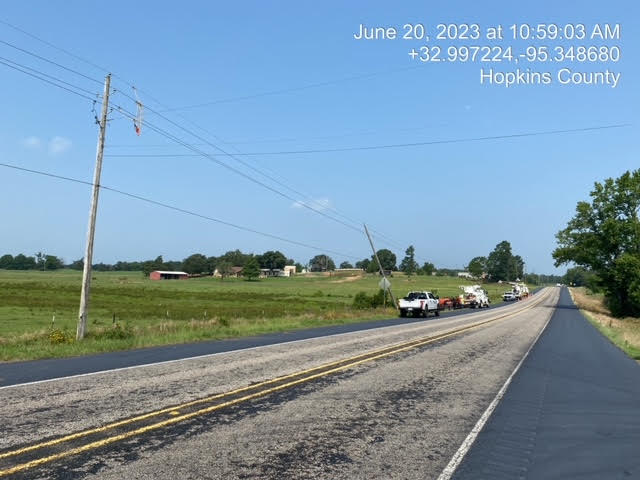Severe weather systems in Texas, such as tornadoes, can pose serious threats to personal safety as well as disrupt power to homes for extended periods. Before an anticipated severe weather event, stock up on essential non-perishables such as canned fish, poultry and canned fruits and vegetables. A loss of power can severely affect meal preparations as well as the safety of important food items needed to sustain healthy living standards,. Texans should be mindful that severe weather season is now, and the threat of these weather systems can disrupt or severely hamper electrical services across the state.
Create a plan: While extreme weather may be somewhat unpredictable here in Texas, preparing and planning for them should not be. Before an anticipated severe weather event, stock up on essential non-perishables such as canned fish and poultry and canned fruits and vegetables, If a blackout is expected to last longer than four hours, consider preplanning recipes using an emergency preparedness cookbook. .Additionally, stock up on sources like dry ice or cold packs to help keep perishable food items cold without power.
Keep it cold: When experiencing a power outage, regulating and maintaining the preexisting temperature of perishable food items is essential. For refrigerated foods, keep items under 40 degrees. Keeping the refrigerator door closed can keep foods cold for up to four hours, whereas keeping the freezer door closed can keep foods fresh for 48 hours in a full freezer and 24 in a half-full freezer. If cold food items reach the four-hour mark in the refrigerator, use a cooler and a cold source along with dry ice or cold packs to keep food cold.
When in doubt, throw it out: Don’t take any chances thinking food is safe to eat when it might not be. When in doubt, throw it out. Sometimes, it can be tricky to tell if perishable food items are safe to eat. However, regarding safety, it is best to be sure. Never taste test foods to determine if they are still safe to eat, If perishable food items such as meat, cut fruit and vegetables, eggs, milk and leftovers have been stored longer than four hours without a cold source, throw them out. It is better to be safe than sick.
Appliances; be safe, be Smart: First, identify what cooking equipment is best. Some standard alternatives to the indoor electric and gas stove include a charcoal or gas grill, camp stoves, fireplaces, wood stoves or a well-controlled outdoor fire. Next, understand the basic safety precautions for the selected equipment. Avoid asphyxiation from carbon monoxide by restricting only charcoal grills, gas grills and camp stoves to outdoor use. While using a fireplace or wood stove, ensure that the chimney functions properly and the damper is open or that the stovepipe has not been damaged on a wood stove. When cooking outdoors, scope out the perfect spot. Placing stones or a metal drum around the fire bed is essential to ensure any fire is well contained. Be mindful to never use gasoline to get a wood or charcoal fire started.
Take care of yourself: Close all drapes and blinds and use cross-ventilation and fans to cool your home. Dress in loose, lightweight, light-colored clothing. Move to the lowest level of your home. Take your family and pets to a cool location if you have one. Try going to an air-conditioned public place like a movie theater or mall during the daytime. Check with your local emergency management to see if there’s a cooling shelter available in your area. Drink plenty of water and avoid heavy meals, caffeinated drinks and alcohol. Remember to provide plenty of cool water for your pets. Use alternative ways to prepare food, like a barbecue grill. Always grill outside. Check on children, seniors and those with medical conditions or disabilities. Turn off appliances to prevent damage from a power surge. Unplug major equipment, including air conditioning units, computers and televisions. Turn off all your lights except one so that you know when power has been restored. Keep refrigerator or freezer doors closed; don’t open unless necessary. A freezer will keep food frozen for up to 36 hours if the door remains closed, and an unopened refrigerator will keep food cold for up to four hours. If an outage lasts longer, remove and pack meat, milk and other dairy products in a cooler with ice.






